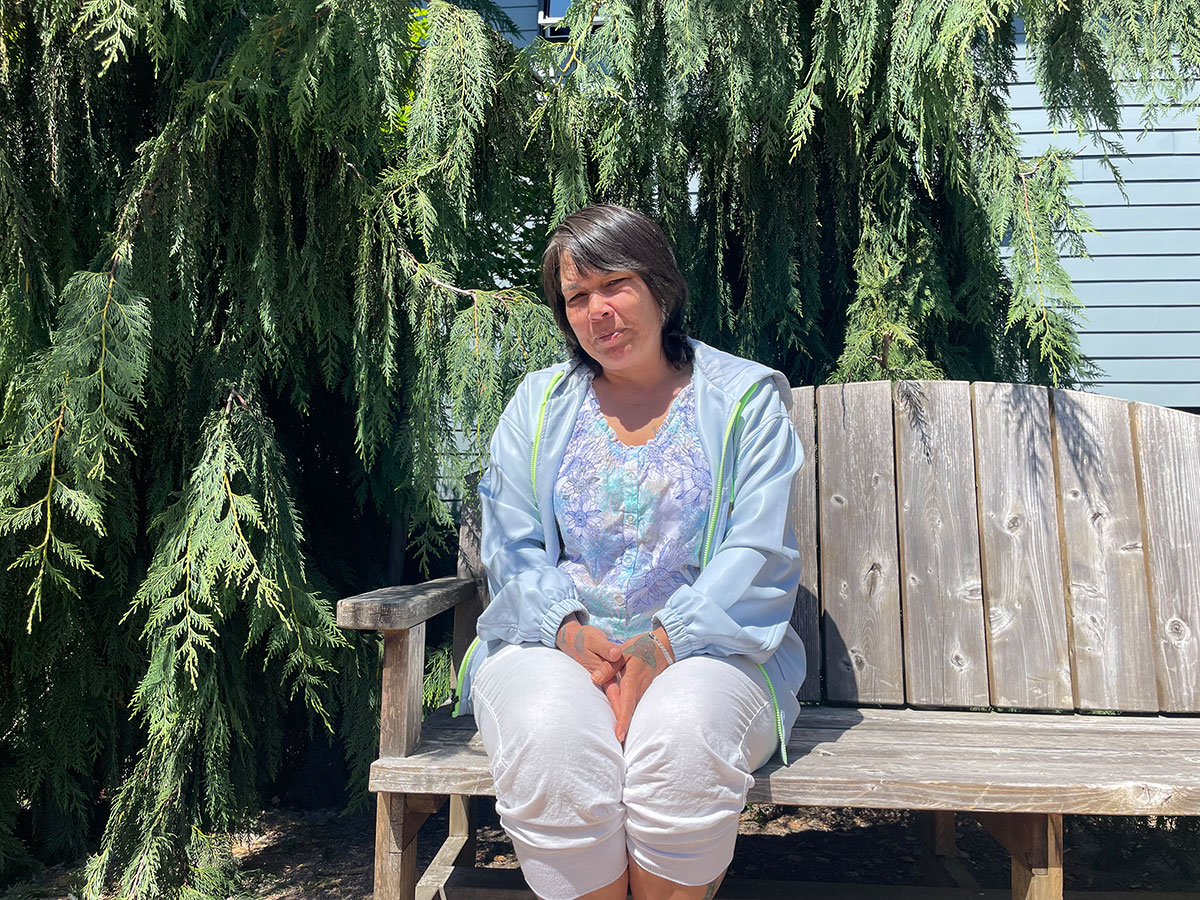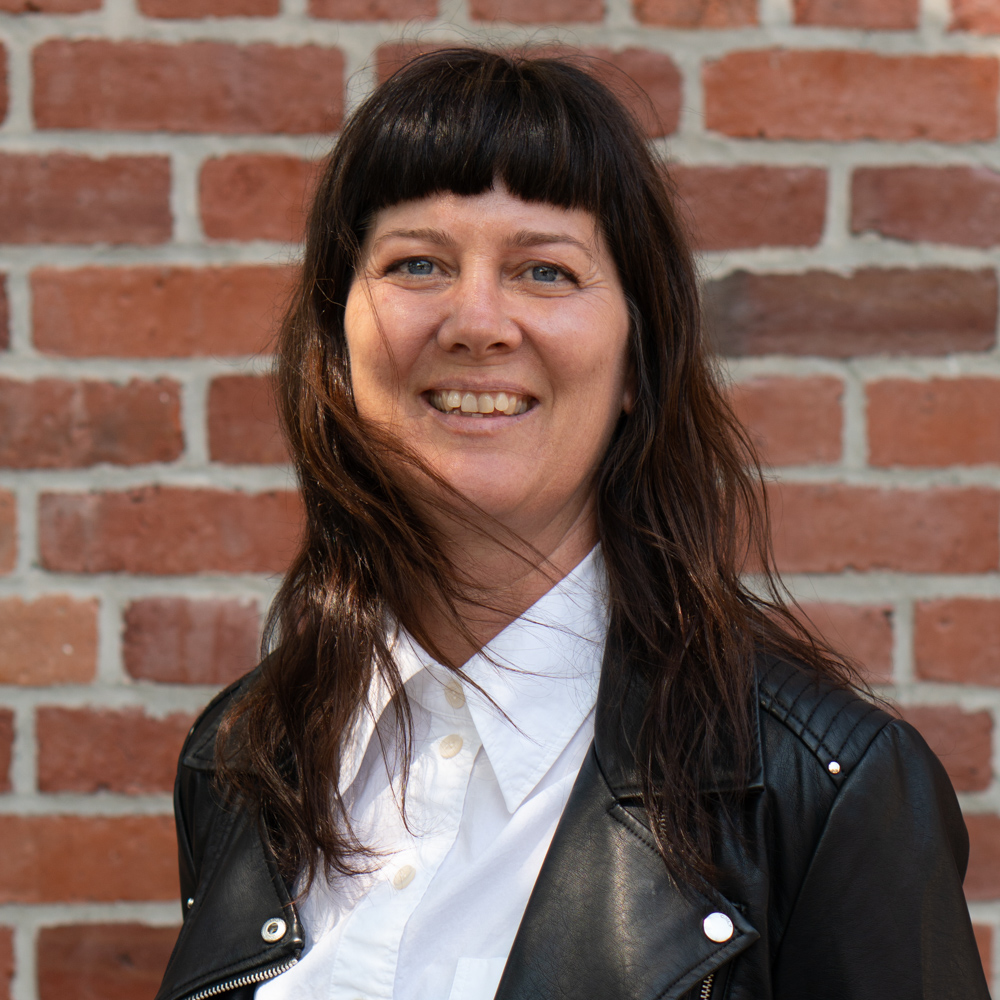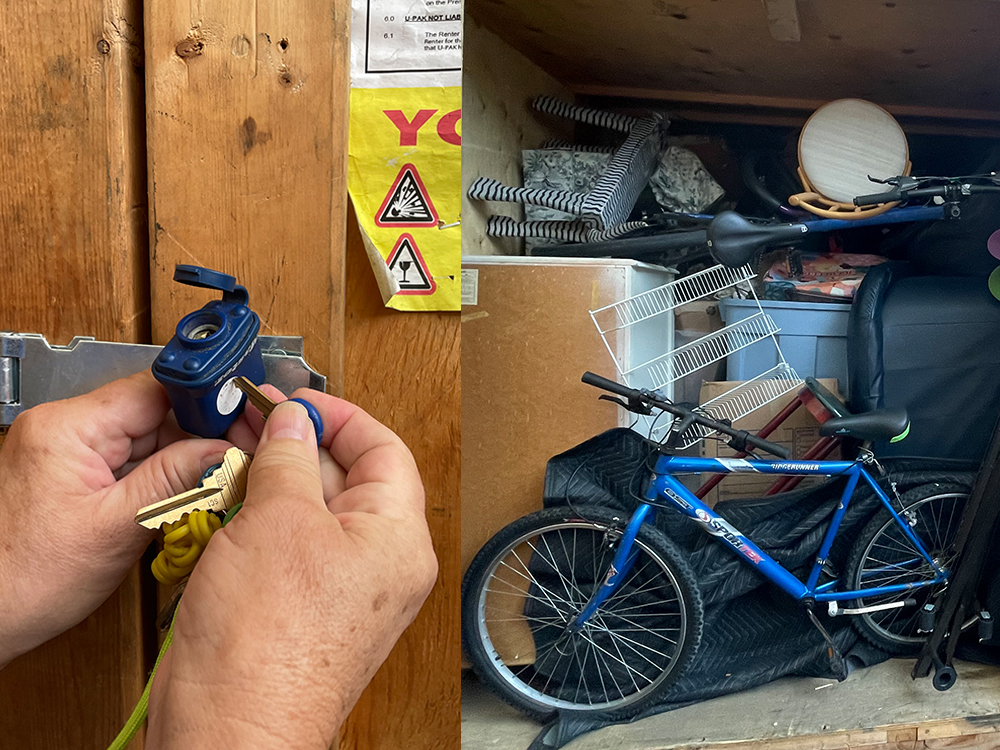[Editor’s note: This article discusses suicide and suicidal ideation, as well as recovery and abuse from trauma. It may be triggering to some readers.]
Lori thought she'd finally found a refuge when she moved into Victoria Women's Transition House four years ago. But instead, she ended up living in her car on the streets of B.C.'s capital city. She was given no choice, she says, when late last summer, staff said her time in the second stage housing program was up — she had to get out.
“They literally helped me pack my last belongings and put it in my son's Dodge Nitro, knowing that there were no campgrounds available, knowing that there were no hostels available,” said Lori, who requested The Tyee withhold her real name out of fear that speaking out could cost her future housing opportunities.
As they helped her load up her car, Lori says one staff member told her to “embrace the process,” a phrase she took to mean that he believed for her to find a place to live through BC Housing, she had to be homeless.
She had failed to find another affordable, permanent place to call home before her mandatory move-out date, and hostels were booked up by tourists attending a local music festival. She was turned away from the shelters at Our Place, who she says told her to ask for help from the organization she had just left, Victoria Women’s Transition House Society.
Lori had no more options. She was so distraught and overwhelmed, she says, she contemplated taking her own life.
Many women who enter transitional housing, including Lori, are fleeing violence and abuse from former partners. Transitional housing is meant to offer them a safe, stable place to live while they heal and figure out their next steps.
Lori is one of 89 individuals who entered homelessness following their time in women’s transitional housing and support programs between April 2022 and March 2023 in B.C. During this time, 293 other women reported returning to abusive situations after living in transition houses. These figures are not an anomaly: according to BC Housing data, they’ve remained consistent over the past five years.
Since BC Housing started collecting data on the types of long-term housing women entered after leaving transitional housing in April 2022 and March 2023, 22 women went on to long-term women’s transition houses and support program housing, 82 moved into non-market housing, 155 moved into market-rate housing with a rent supplement, and 384 entered market-rate housing without a rent supplement.
Those familiar with transition housing in B.C. say the problem is that there is not enough affordable, permanent housing for people leaving transition housing programs move into.
Eight former residents of transition homes in Victoria told The Tyee there was little support within transition houses to help them secure permanent housing before their time ran out. Four of these women say that led them to living unsheltered for a time after their experience in transition housing.
Many of these women also said that their time in transition houses was retraumatizing, discriminatory and dehumanizing. They say they faced physical, verbal and financial abuse before seeking out shelter in transition homes, and still struggle with trauma and other symptoms as a result of the abuse.
Leilani Farha, global director of the Shift and former UN Special Rapporteur on the right to housing, says it’s common knowledge for those working to address homelessness in Canada that there are few, if any, permanent places for people to transition to after living in transitional housing.
But on the ground, former transition house residents told The Tyee that they were promised assistance and opportunities to access permanent housing — only to find themselves entirely on their own to find a place they could stay indefinitely.
“What those shelters are doing is just housing them for [up to] three years, knowing full well they're headed back into the street,” said Arlene Hache, co-founder of the Women's National Housing and Homelessness Network and the Canadian Alliance to End Homelessness.
“The impact is massive. It's like institutional betrayal.”
Nowhere to go
Time goes quickly in transition homes. Several women shared that months, even years can go by in a flash as they work to heal and get their bearings. But with long wait lists for BC Housing units, soaring prices for private rentals, and limited availability in all types of housing, former transition house residents say that even with devoting much of their time to seeking out their next steps, finding somewhere to live is not guaranteed.
Amy FitzGerald, executive director of the BC Society of Transition Houses, says it’s very common that women aren’t able to secure affordable housing after their time in transitional housing. A 2023 report from the Canada Mortgage and Housing Corp. found rent in B.C. is the highest in Canada. The share of units affordable to renters in the lowest 20 per cent of incomes is one per cent in Vancouver and Victoria.
Many of the women who spoke with The Tyee for this story have disabilities, which can further complicate existing barriers to attaining permanent housing. Some of the women have multiple children, meaning they must find housing with two or more bedrooms to meet the National Occupancy Standard.
With nowhere else to turn, FitzGerald says many women in these situations become part of the “hidden homeless,” living with friends and family or in temporary shelters. According to data from BC Housing, 1,573 women on average each year reportedly entered “hidden homelessness” — staying with friends and family, sleeping at shelters, or moving to other second stage housing.
After witnessing Lori’s eviction, Jane, who was staying in the same transition house, was distraught. She had about six months left in her own contract and knew she would face an uphill battle to secure an affordable place to live. Jane, whose name The Tyee is withholding because she fears it could hinder future housing opportunities, had spent much of her three years in the transition house preparing herself for the future — first going back to school for her GED, then taking university courses — and had been awarded a full-year scholarship for classes set to begin in September 2022.
But Jane knew that when it came to putting her full energy into university or the search for housing, she could only choose one. She had been homeless prior to staying at the transition home and vowed never to return to sleeping in her car. So she gave up her scholarship.
“When I had to make that choice to focus on housing, that was soul crushing,” she said.
In the weeks leading up to her move-out date at the end of January, with no new place lined up, Jane was so nervous she couldn’t sleep. She talked to the deputy director of the Victoria Women’s Transition House Society, who in an email shared with The Tyee told Jane, “if you can present a confirmation of a lease or a lease agreement, prior to the end of January, then the agency is willing to discuss an extension.”
Jane signed a lease on Sunday, Jan. 30, for an apartment she could move into in March. However, she couldn’t locate any transition house society staff on site to show her lease to before the month ended, so her request for an extension went unanswered. Jane spent the next month homeless, waiting for her new lease to begin. In April, she heard from a friend still living at the transition home that a new occupant had yet to move into her unit.
Another former resident, Autumn, whose name The Tyee is withholding for privacy reasons, also faced homelessness after her contract ended and she was evicted.
Autumn says she also struggled with thoughts of suicide as an alternative to being forced into homelessness leading up to her eviction, which she felt she would not survive as a woman in her 60s with multiple medical conditions.
“I haven't fought this hard all my life to end up on the street,” she said. “I was getting ready to die.”
Instead, Autumn kept pushing — and after two months of homelessness, she secured stable housing.
Deborah Rogers, a spokesperson for the Victoria Women’s Transition House Society, declined to comment on any of the allegations made by former residents. However, she said they have seen “considerable success” moving women into housing after transition housing.
“We acknowledge our community’s lack of affordable housing leaves us all with fewer options,” she wrote to The Tyee via email. “[The program] is not permanent housing and has an end-date for each client — a date that each client is aware of as outlined in their intake and in the supportive transitional housing contract that they sign at the beginning of their stay.”
Returning to abuse
It took a long time for Jennifer Johnson to feel stable again after she was evicted from transition housing into homelessness.
She was just a few days into her stay at a transition home in Victoria after separating from an abusive boyfriend and leaving behind most of her belongings.
That night, Johnson was hit hard by a wave of PTSD that left her scattered — she misplaced her phone and bus fare, and couldn’t remember the way back to the transition home. She knew that even if she borrowed a phone, she wouldn’t be able to find the address online, so she started to walk.
After searching all night and into the next morning, Johnson finally arrived at her transition house. But instead of welcoming her in, she says the staff told her she had to leave. Johnson had broken curfew, so they said her place now belonged to someone else.
The staff brought down her bag of belongings and a donated homemade blanket from her bed. The blanket was too heavy for her to carry, so Johnson had to sit on a nearby picnic table and decide what to take with her before departing from the transition home for the last time, in tears.
“The next night, I ended up sleep walking throughout the night wrapped in a blanket they gave me, because I didn't know of anywhere else to go,” she said.
“My heart was broken twice over. What was I supposed to do but try to survive?”
Johnson struggled with homelessness for months after her eviction. She eventually found temporary shelter in another transition home, where she shared a room with eight other women, before she moved back in with her abusive partner in order to get housing.
After they separated again, Johnson secured a housing subsidy from the Victoria Native Friendship Centre which allowed her to live on her own. If not for this, Johnson says she likely would have been homeless for a lot longer as she cannot afford the current rental market.

It’s been four years since she was evicted from the transition home, but Johnson says she still is coping from the trauma and stress from that experience. It has taken her a long time to feel settled in her home and to stop feeling as though it might go away at any moment.
Johnson believes that if she had been better supported, she would not have gone back to her former partner, experienced homelessness, or had to rely on other transition houses.
“I’m thankful for what I have today,” she said. “But to think of all the other ladies and families that have children who may be getting evicted [because of] transition houses not understanding their personal traumas, that just doesn't seem fair to me.”
Retraumatized within transition houses
Many women who spoke with The Tyee for this story also said their recent experiences inside transition homes retraumatized them. Numerous women described a culture created by staff inside transition homes where women feared speaking out, as they felt it would limit their access to housing resources and other opportunities.
Lacey, who asked The Tyee to identify her only by her middle name, has stayed in four transition homes in B.C. and Alberta over the past 11 years. Her most recent experience at a transition home in Victoria last fall felt different — largely, she says, because of a hostile environment created by staff.
“It felt the same or worse than the abusive situation I had just gotten out of,” Lacey said.
Among her experiences, she detailed “dehumanizing” encounters with staff over food: from having to “beg” for food from the locked communal fridges, to being told to use an old, greasy metal burner liner instead of aluminum foil to cook food on in the oven when making dinner for the other residents.
She and other women say they were served donated food past its expiry date.
“I got very sick three times while I was there because of improper food handling,” Lacey said. “My children didn't want to eat.”

During Jane’s time at the Victoria Women’s Transition House, her physical disability prevented her from being able to use the shower in her unit, as it was not accessible. When the lone accessible unit in her building became available, she asked to move into it. Jane says she was told by staff that it was against policy for her to move units, and that she could install railings in her own shower at her own cost. However, she would have to leave them behind when she moved out.
Jane says she couldn’t afford the railings herself. Instead, she bathed using baby wipes, and paid to have her hair washed at a salon.
Speaking out about this issue, and others is something Jane believes limited her ability to access an extension at the end of her time at the transition house or be matched with affordable housing. Several women detail barriers to accessing housing resources through the housing society, including Lori, who says the housing support worker on staff didn’t show up to meetings she had scheduled.
Allegations of unequal treatment
One woman who did get help from the Victoria Women’s Transition House Society to find affordable housing, Robin, says she saw some women like herself get “special privileges.” When she moved out into her new home, she requested a week extension to finish cleaning her former unit at the transition home — which she says was granted. The Tyee is using a pseudonym for Robin in order to protect her privacy.
Though she says she feels lucky for her own experiences at the transition house, Robin feels troubled by what she witnessed other women going through.
Michelle Ferris had to fight for six months, and with the help of a lawyer, to return to her transition house after leaving for addictions treatment. After she returned, she says the transition house wouldn’t allow her to have guests over, including anyone who could provide child care for her young children.
Another woman who stayed in the same transition home as Ferris said she was allowed to have a family member stay with her to help during the months when she was pregnant and after having the baby.
Ferris also says she was promised counselling while in this transition home, but was never connected with a counsellor. Instead, she says staff sent women struggling with addictions to her for help and consultation. By the end of her stay, she says other women in the transition house thought she was a member of the staff.
“I remember women coming out of their apartments and being like, can you come fix my fridge?” said Ferris. “It was beyond stressful and on top of that, I was fresh in my recovery.”
Autumn compares her encounters with transition house staff with her time in the military.
“It was like being back in boot camp,” Autumn said. “Anything you do is wrong. Direct threats, intimidation, psychological warfare, that's their game.”
Autumn reached out to MLA Rob Fleming for support, who filed an official report with the parliamentary secretary for gender equity. Despite multiple attempts to follow up, however, Autumn says she was never informed of the outcome of this report.
Bottlenecked systems
FitzGerald has seen some transition homes start allowing residents to stay beyond the standard time frames. The longer women stay, the more stable and secure their situation is when they are able to move on to permanent housing, she says.
However, there is a high demand for transition programs across B.C. The Victoria Women’s Transition Housing Society’s 18-bed emergency shelter housed 137 women and 71 children last year — with a waitlist of 193 people.
“When you can't move on and there's nothing to move on to, there's just a bottleneck at all of those steps,” FitzGerald said.
Nicole Chaland, co-lead of a community-based research project called the Housing Justice Project, says women shouldn’t be pitted against each other for limited space and resources in transition programs. Instead, she believes the province needs to build 20,000 units of housing to rent for $500 a month in Greater Victoria alone to begin addressing this issue.
Until then, Chaland says governments should extend tenancy rights to people living in transition homes, who currently have no recourse to appeal their evictions.
“The life expectancy of people who experience homelessness is half that compared to the average Canadian, so it is not an exaggeration to say homelessness is a death sentence,” Chaland said. “We cannot make one woman safe by making another woman extremely unsafe.”
Based on human rights claims which Chaland and Hache contributed to, the Federal Housing Advocate requested in May that the National Housing Council launch a review panel on the failure to prevent and end homelessness for women and non-binary people.
Farha, the former UN Special Rapporteur, says that ultimately the responsibility falls on federal, provincial and municipal governments more than individual transition houses for ensuring that people are not transitioning into homelessness.
“A person who reaches a certain level of status within housing shouldn't be forced backward,” she said. “Governments that are failing to adequately fund long-term housing options, for example for women living in transition shelters, are running afoul of human rights law.”
The B.C. Ministry of Housing declined to answer questions from The Tyee in an interview for this story. They provided a statement that detailed the province’s plan to invest in creating 1,500 new spaces for women and children fleeing violence over the next 10 years through the Homes for People plan. The statement also said BC Housing offers rent supplements and affordable housing opportunities for women moving out of transitional housing.
“While we acknowledge that more needs to be done to ensure transition house guests do not return to homelessness or abusive situations, we are taking the actions needed to address these gaps,” the statement reads.
A safe, permanent and affordable place to live can be life changing. Unfortunately, Lori is still waiting for that change.
Lori recently moved out of her car. But her situation remains precarious. Lori pays $1,500 a month to rent a room and keep the rest of her belongings in storage as she continues to wait for an open space with BC Housing or Pacifica Housing.
“What I'm praying for right now is that stability enters my life,” Lori said. “I would love so much to move my belongings into a place, get settled, and know that I can be there forever.” ![]()
Read more: Health, Rights + Justice, Housing, Gender + Sexuality

















Tyee Commenting Guidelines
Comments that violate guidelines risk being deleted, and violations may result in a temporary or permanent user ban. Maintain the spirit of good conversation to stay in the discussion and be patient with moderators. Comments are reviewed regularly but not in real time.
Do:
Do not: